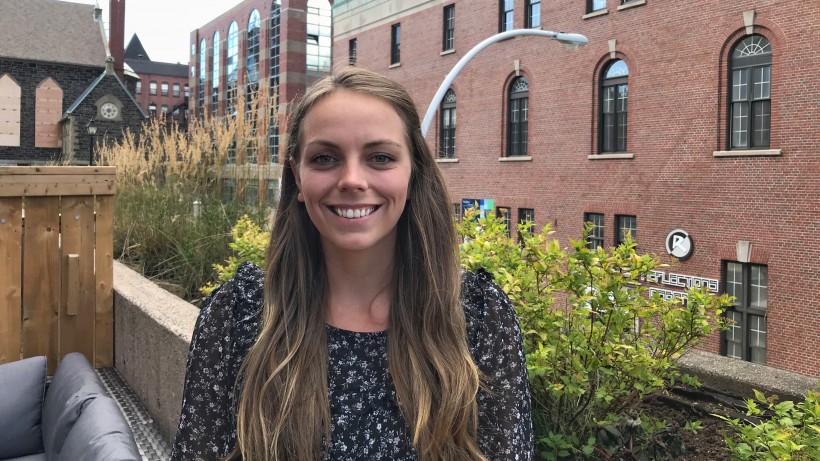The founders of a startup that aims to help oil and gas companies track their greenhouse gas emissions believe their business is poised for rapid growth.
Arolytics was developed at St. Francis Xavier University, where co-founders Liz O’Connell, Emmy Atherton and Dave Risk were developing technology to measure methane releases. Now, they are preparing to help for-profit businesses document those same emissions ahead of looming regulatory changes.
"We were developing a mobile method of detecting methane emissions, and through our projects with industry, we started to recognize a need for data management help,” said product development lead Atherton in an interview.
The creation of Arolytics in February of 2018 was inspired by impending legislation in Canada, Mexico and the United States requiring fossil fuel producers to track how much methane their properties release and file reports with government.
The Canadian legislation was passed in April of the same year, and will take effect in January 2020.
In August, the Trump administration rolled back plans for American federal regulations, but several states have passed laws with similar content.
Meanwhile, according to industry publication Natural Gas Intelligence, Mexico plans to ratchet up enforcement of its own new rules in 2020, despite budget cuts to its fossil fuel regulator.
In addition to serving as Arolytics’ science and development lead, Risk is a professor of earth sciences at St. Francis Xavier and leads its Flux Lab, where the co-founders first worked together.
O’Connell serves as Arolytics’ president and is based in Calgary, which allows her to be closer to major industry players.
“I’m able to have my boots on the ground, knocking on customers' doors and really understanding the pain that these operators will be facing in January,” said O’Connell.
When the software is ready, clients will usually hire third-party contractors to capture raw emissions with handheld scanners, satellite imagery or other techniques.
The data will be forwarded to Arolytics and uploaded to the digital platform for collation and analysis. Future updates may also allow customers to input the data themselves.
The platform will automatically compile reports that can be sent to regulators. Eventually, O’Connell said, Arolytics also hopes to be able to identify trends within the data and suggest steps to reduce emissions. For example, it could identify leaking equipment.
Atherton added that customers will probably pay a yearly subscription fee, but that the details may still change as a result of ongoing conversations with industry.
While the system is under development, Arolytics is consulting with several oil and gas companies to help the team prepare for the new regime.
“We’re building relationships with these large oil and gas operators so we can then onboard them as customers,” said Atherton. “We’ve been told by people in the industry to be prepared to scale.”
The company recently hired a software developer, bringing its employee count to three, including O’Connell and Atherton -- Risk is not a full-time employee. Arolytics won $25,000 at the Volta Cohort pitching competition in May, and went through Dalhousie University's Launchpad accelerator this past summer.
The founders are preparing to raise a round of seed funding within six months, which will be used to hire more staff, and are aiming to begin customer trials in late fall.










